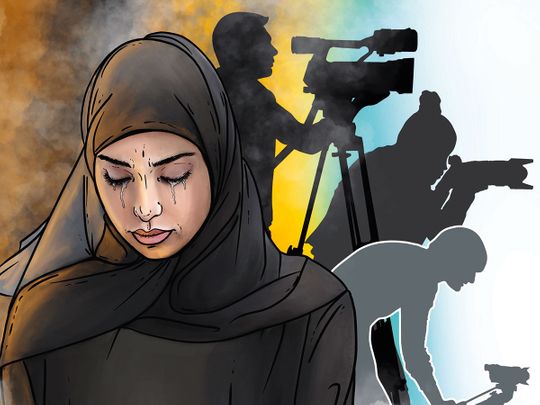Why Islamophobia is hurting Europe
Europe has no moral right to preach the values of secularism to rest of the world

Europe, which claims and aims to hold the moral compass for the rest of the world on minority rights, tolerance, and inclusivity, fails to hide its dark bigotry of Islamophobia anymore. Anti-Muslim sentiment has been on the rise in the continent, at least for the last two decades. It is neither confined to former communist countries in the East nor is it only hyped by far-right political parties and populist leaders. Islamophobia has become mainstream and even institutionalised in some cases.
Mainstream political parties have been giving Islamophobic statements and promoting policies and laws in the name of secularism and freedom of speech. European Union has been securitising its border, particularly in the Balkans, by enacting bordering practices that link crime-terror nexus with the Muslim population.
Prejudice against Islam is gaining strength in many corners of Europe. Statistics from across Europe show that the attacks against mosques and Muslims are taking place regularly, and it is happening everywhere. In the UK, Muslims are twelve times more likely to be victims of hate crimes than Christians. The growing hate crimes against Muslims in countries like Belgium include vandalism of mosques and painting swastika graffities onto cars.
Islamophobic social media space
Islamophobia has also occupied most of the social media space. Conspiracy theories about the so-called Islamisation of Europe are being cooked and delivered through the internet day in, day out. Online harassment and attacks have become very common, mainly targeting Muslim women.
In France, one-fifth of all the reported Islamophobic incidents are online threats. Online Islamophobia in Europe is not driven by unknown trolls or far-right groups only. Members of mainstream political parties, various so-called civil society outfits, and some media houses, directly and indirectly, contribute to this.
The so-called refugee crisis from the Middle East and exaggerated fear of Islamist terror have pushed the far-right populist leaders from the fringe to be the leading power players in most countries in Europe. Frances’s National Rally, the UK’s Ukip, Spain’s Vox Party, Austria’s Freedom Party, and Sweden’s Sweden Democrat are some of the anti-Islamist political platforms gaining more extensive support.
The Far-Right anti-Muslim political group has 73 MEPs in the European Parliament, almost as many as the Greens. They hold 10% of MEPs in the European Parliament after the 2019 election, compared to 5% in the 2014-19 session.
Securitised and politicised
A month ago, the UN Secretary-Antonio Guterres remarked that hatred and discrimination against Muslims had reached epidemic proportions. How someone can wear a piece of cloth is even being securitised and politicised. Since 2010, France has banned the burqa.
Besides France, several other European countries, including Austria, Belgium, Denmark, Germany, Italy, the Netherlands, Norway, and Spain, have also enforced a full or partial ban on the burqa.
French Senate on 8 April 2021 has passed an ‘anti-separatism’ bill which needs to be ratified by the National Assembly to be the law that bans girls under 18 from wearing hijab in public. There is also another amendment that aims at banning body-covering swimsuits, known as the burkini.
Moreover, the justification of political leadership of repeated provocations being made by displaying cartoons of Prophet in the name of free speech leads to a feeling of further marginalisation among 5.7 million Muslims living in that country.
In Germany, some universities have closed down prayer rooms used by Muslim students, citing the fear of those spaces being used for radicalisation. In Spain, some teachers in schools are reportedly considering students growing a beard as a sign of radicalisation. Switzerland has banned minarets in the Mosques since 2009, and in March 2021, the country voted to ban the burqa.
Little social integration
The state-promoted Islamophobia has made it extremely difficult for the economic and social integration of Muslims living in Europe. As the European Union Agency for Fundamental Rights (FRA) study in 2018 finds, Muslims all over Europe are experiencing discrimination in housing and employment because of their religion.
Islamophobia has targeted Muslims by encouraging exclusion and discrimination, which has endangered harmonious cohabitation and led to radicalising a section of youths. Anti-Muslim bigotry has also delegitimised the established political system and created distrust towards traditional political elites in Europe.
The rise of Islamophobia has significantly contributed to the rise of populism, Euroscepticism, and the politics of anti-politics in the European continent. Electoral successes of far-right political parties have even forced many mainstream political parties to adopt this rhetoric.
Polarisation has thus posed a severe threat to mainstream politics in Europe, with it to the established consensus on democracy, human rights, open and inclusive society. Fast-growing anti-Muslim bigotry has brought back ethno-nationalistic tendencies to the pre-World War II period in many countries, which has dented Europe’s global standing.
Muslims are 5% of Europe’s population, a minuscule minority. Even in France, where the some political leadership is openly adopting Islamophobic political posturing, Muslims are only 8.8%.
A continent, with its recent colonial history and plummeting population number, when it fails to accept and provide a safe space to such a small minority, which doesn’t even pose any political and territorial threats, has no moral right to preach the values of secularism and protection of minority rights to rest of the world.
Source Gulf News


